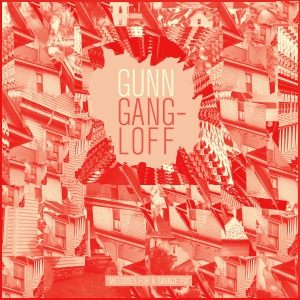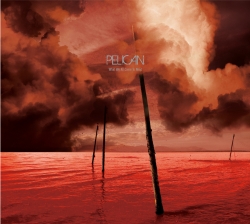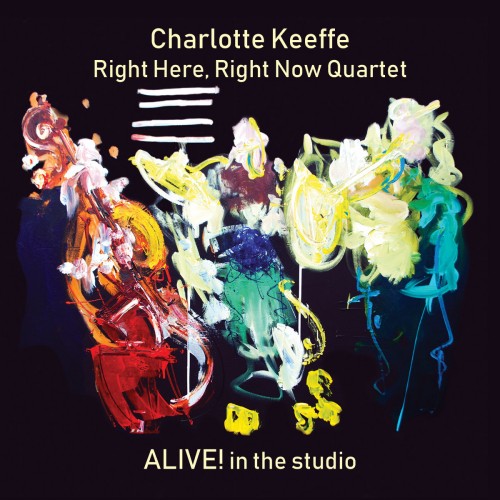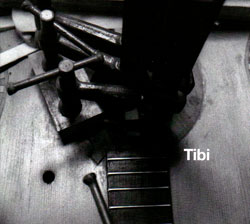 There are four main ways of making music that sounds different to anyone else: by devising your own conceptual framework; using rare or unique instruments and equipment; developing an unusual approach to your instrument; or by training until your technique is broader, faster or more specialised than that of other players. Depending on your level of insecurity you may reinforce these with deliberate obfuscation, whether that entails removing the labels from your vinyl, claiming that you don’t understand or aren’t interested in your own process or ability, hiding your equipment or simply not answering questions. It depends whether or not you’re afraid of the competition or you think you’re the kind of person who’s only going to have one decent idea in your lifetime, and if those particular caps fit then you’ll probably prefer to reframe your evasiveness as ‘mystique.’
There are four main ways of making music that sounds different to anyone else: by devising your own conceptual framework; using rare or unique instruments and equipment; developing an unusual approach to your instrument; or by training until your technique is broader, faster or more specialised than that of other players. Depending on your level of insecurity you may reinforce these with deliberate obfuscation, whether that entails removing the labels from your vinyl, claiming that you don’t understand or aren’t interested in your own process or ability, hiding your equipment or simply not answering questions. It depends whether or not you’re afraid of the competition or you think you’re the kind of person who’s only going to have one decent idea in your lifetime, and if those particular caps fit then you’ll probably prefer to reframe your evasiveness as ‘mystique.’
On the other hand, if you’re anything like Paolo Angeli you’ll take a scorched earth approach to musical individualism by ticking all four boxes before releasing a DVD that shows exactly how you did it. I doubt he’ll lose any sleep over people appropriating his ideas: one definition of genius is to apply yourself to something so time consuming that no one in their right mind would attempt it. Realising your instrument’s limitations and adding modifications to overcome them is probably where most musicians would draw the line. Having your new hybrid instrument require independence of movement in four limbs, a precise knowledge of how unusual playing implements and preparations might affect the timbre and then mastering how to play it… that’s overachievement on a scale that few would try to replicate.
When is a guitar not a guitar? Angeli has coloured outside of the lines of any reasonable definition, turning it into a miniature one-man orchestra. His Sardinian prepared guitar has been augmented with pedal operated hammers on the bridge, several additional sets of playable and sympathetic strings both parallel and perpendicular to its standard set, motors that play internal strings like a hurdy gurdy and in excess of ten pickups in order that each set of strings can be processed individually. In addition to these extensive modifications he prepares his guitar in the conventional manner (bulldog clips, springs, metal or card between the strings), makes frequent use of bows and occasional use of effects pedals. Conspicuous by their absence are the quick and easy loop and delay pedals favoured by most would-be one man bands. These devices impose more restrictions than they provide solutions, while their ability to make any sound into a drone or a riff – without requiring anything in the way of skill – has been responsible for more idea-impoverished music than almost any invention since – ahem – the guitar.
Interesting, then, that Angeli’s frankly astounding weapon of choice has been christened something as humbly nondescript as ‘the Sardinian prepared guitar.’ This seems to be an understatement of intent, a conceptual framing device intended to downplay the instrument’s ingenious construction and contextualise the music as though it were part of a regional tradition. Angeli’s playing eschews what one might expect of such a broad textural palette and methodological repertoire. Every facet of his technical ingenuity is in service of composition and melody, the sonic result being a seamless integration of folk, classical and jazz forms with a deftness of touch that keeps the music from becoming twee, worthy or dull.
It’s a masterful display that demands to be experienced on Tibi’s accompanying DVD, on which he soundtracks the instrument’s creation via still photographs taken by Nanni Angeli. The images capture the process of creation in intimate detail: the grain of the wood, the dull glint of unworked metal, the prototype components, the workshop. One particularly powerful image shows the guitar half made and exposed, trailing footpedal cables like tentacles as though it were some kind of bizarre beached hybrid of giant squid and shipwreck carcass. The only possible – and very minor – criticism of this otherwise inspiring package is that Paolo Angeli tames his wonderful creation just that little bit too much. His compositions sometimes impose too rigid a structure on sounds that demand more freedom to breathe, so that every facet of their tone can be savoured.
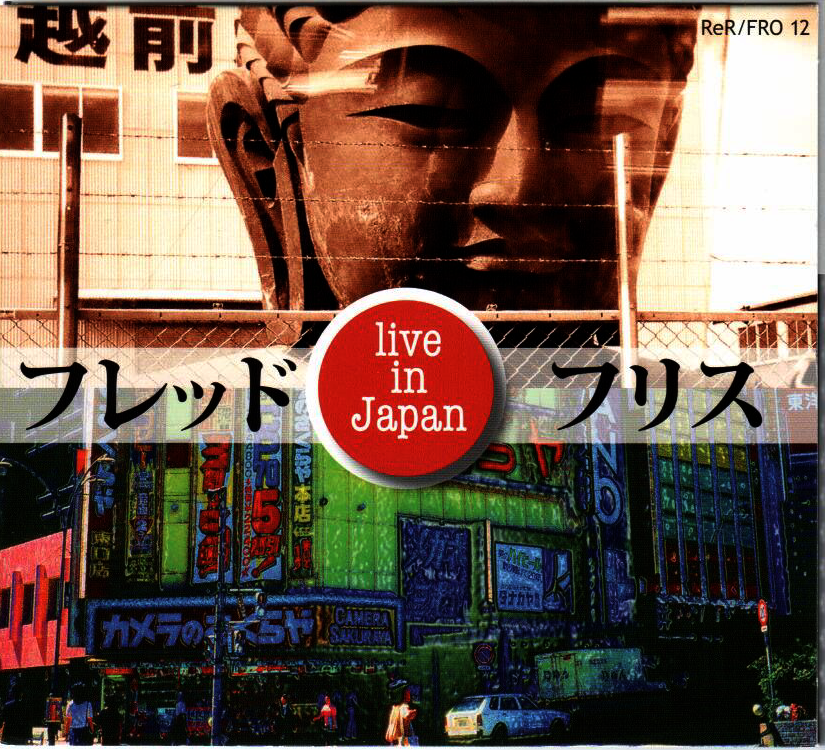 It’s a criticism that can’t be levelled at the CD re-release of Fred Frith’s extraordinary 1982 double LP Live in Japan, on which the legendary Henry Cow and Art Bears guitarist attacks a table-top array of stringed instruments (a solid body Burns guitar, a double-necked Charles Fletcher original and a violin) while modulating his voice with a World War II pilot’s throat microphone. Frith’s eight improvisations (recorded in Osaka, Fukuoka, Maebashi, and Tokyo) take his seminal 1974 work Guitar Solos as their starting point and allow each of their ideas to be explored in full.
It’s a criticism that can’t be levelled at the CD re-release of Fred Frith’s extraordinary 1982 double LP Live in Japan, on which the legendary Henry Cow and Art Bears guitarist attacks a table-top array of stringed instruments (a solid body Burns guitar, a double-necked Charles Fletcher original and a violin) while modulating his voice with a World War II pilot’s throat microphone. Frith’s eight improvisations (recorded in Osaka, Fukuoka, Maebashi, and Tokyo) take his seminal 1974 work Guitar Solos as their starting point and allow each of their ideas to be explored in full.
Every gesture is considered and controlled: ‘extended technique’ is too often used as a replacement for skill, whereas here it’s employed with as much care and attention to detail as any more conventional approach. The record overflows with sonic illusions; sounds seem to begin as one thing yet become something else entirely as they decay; guttural vocal utterances seamlessly merge into grimy oscillations, or sometimes seem to be modulating the guitar itself; rhythms emerge that resemble tape loops, before collapsing on themselves. Unlike Keith Rowe’s tabletop approach, Frith’s sounds are always audibly subject to his careful control and nearly always recognisable as that of a guitar, regardless of which implement is being used on the strings or how the sound is processed.
Having spent much of 2007’s Tessuti covering Frith’s work – indeed, having collaborated with him directly – it would be superfluous to say that Angeli owes a debt to the older pioneer. Many of Frith’s innovations are audible throughout Tibi, albeit systematised very differently. Both could loosely be called popularisers; Frith through his numerous collaborations and workshops in guitar improvisation; and now Angeli through Tibi. So it’s interesting that both these works leave the listener with such contrasting impressions. Live in Japan conveys the sense that these sounds and ideas are attainable, open to everyone. Ideas unfold at their own pace and are explored fully, made on instruments that are easily customised or available anywhere. Frith’s talent is inclusive, slightly scrappy in places, and he welcomes other guitarists to incorporate his approach. Tibi documents the evolution of something more aloof, less accommodating. Angeli’s instrument looks and sounds like a complex work of art, something that can only truly appear elegant in the hands of such a master musician.
There’s a telling moment on one of Tibi’s bonus tracks. Nanni’s camera dwells on a washing line captured against a clear sky, the line itself invisible so that the clothes seem to be in flight, suspending themselves in the blue. Knowing how the shot has been achieved makes no difference to the effect: the familiar has been turned on its head, given fresh life and held aloft as if by something supernatural.
-Seth Cooke-

